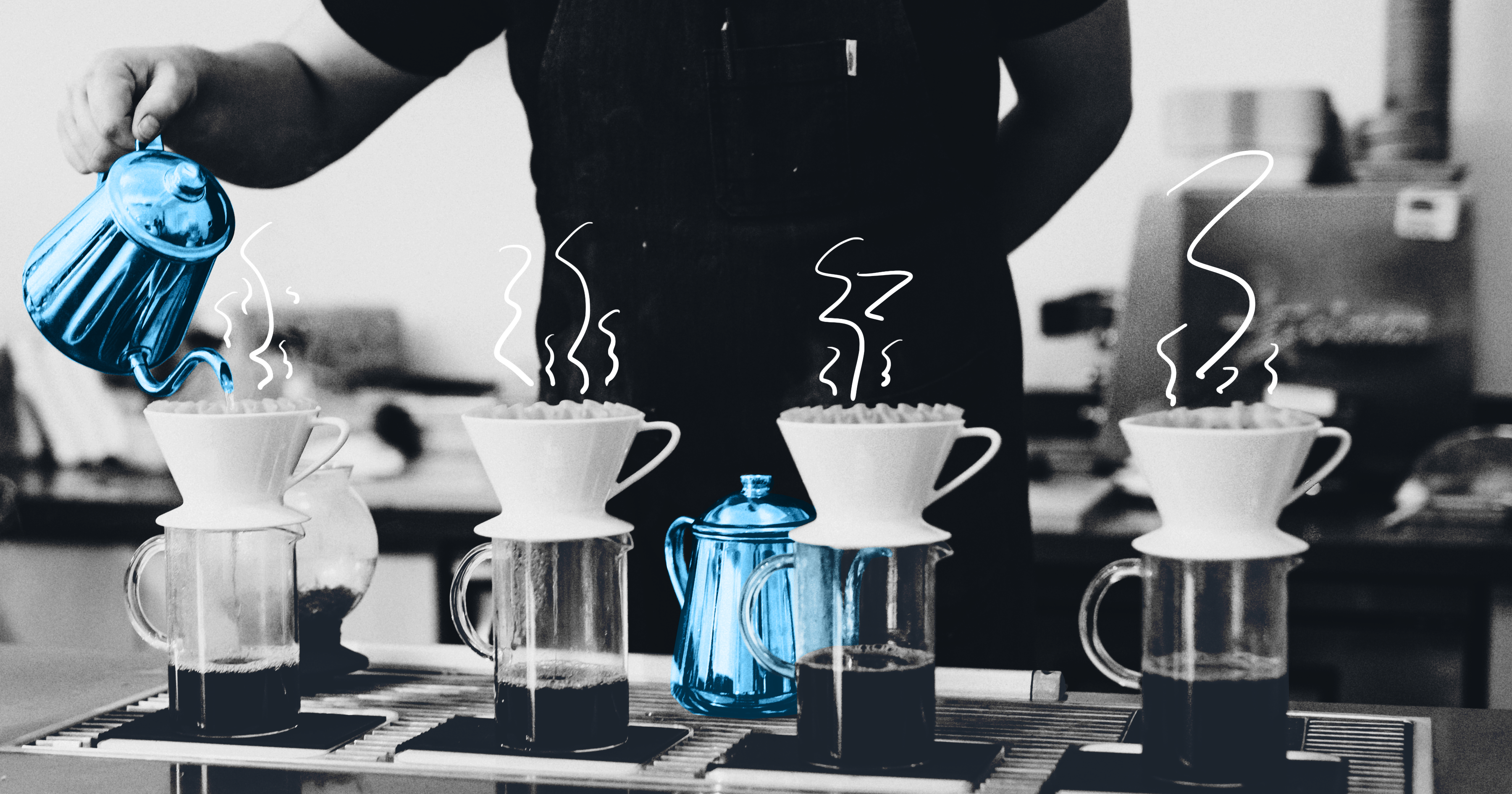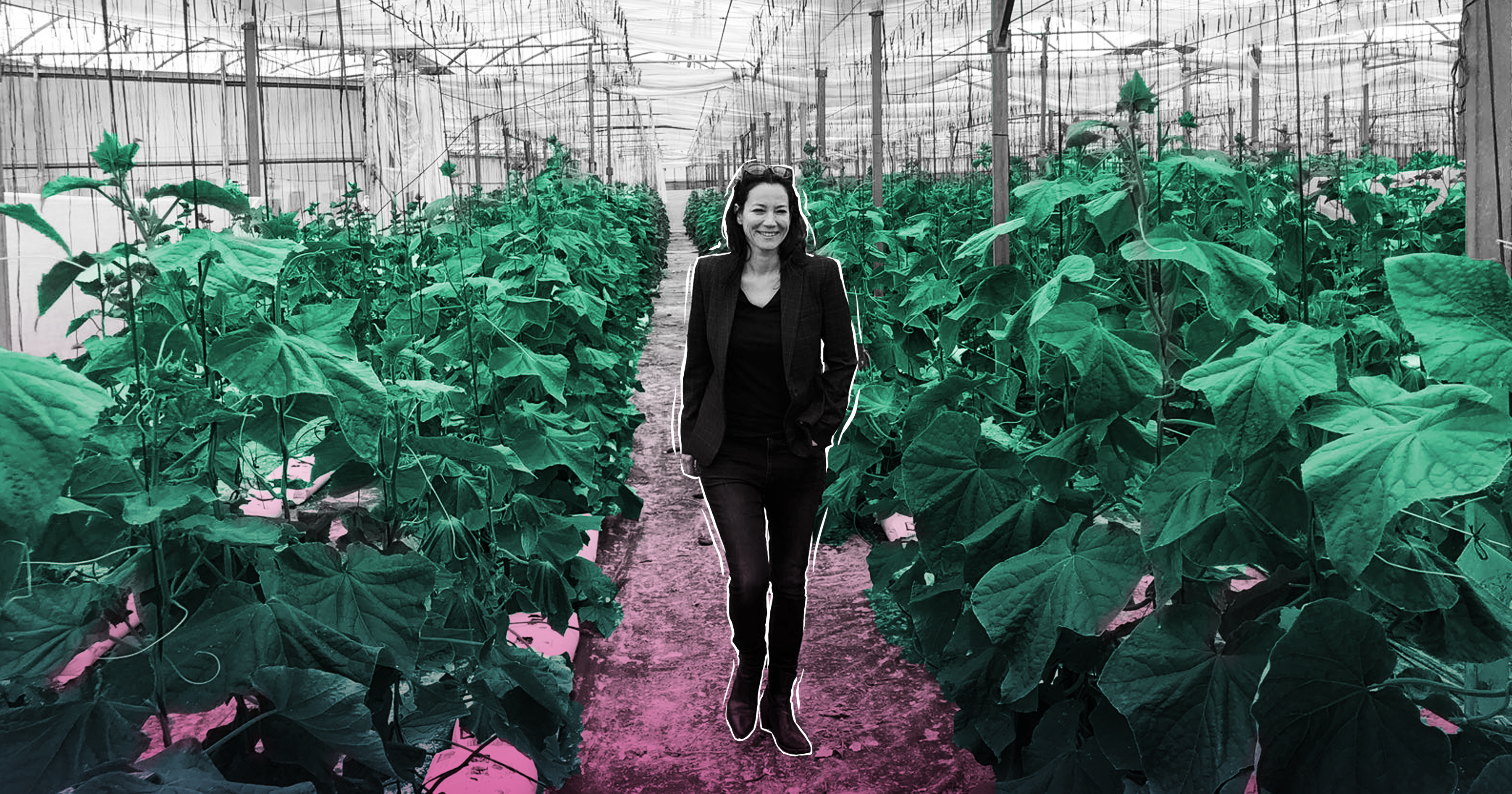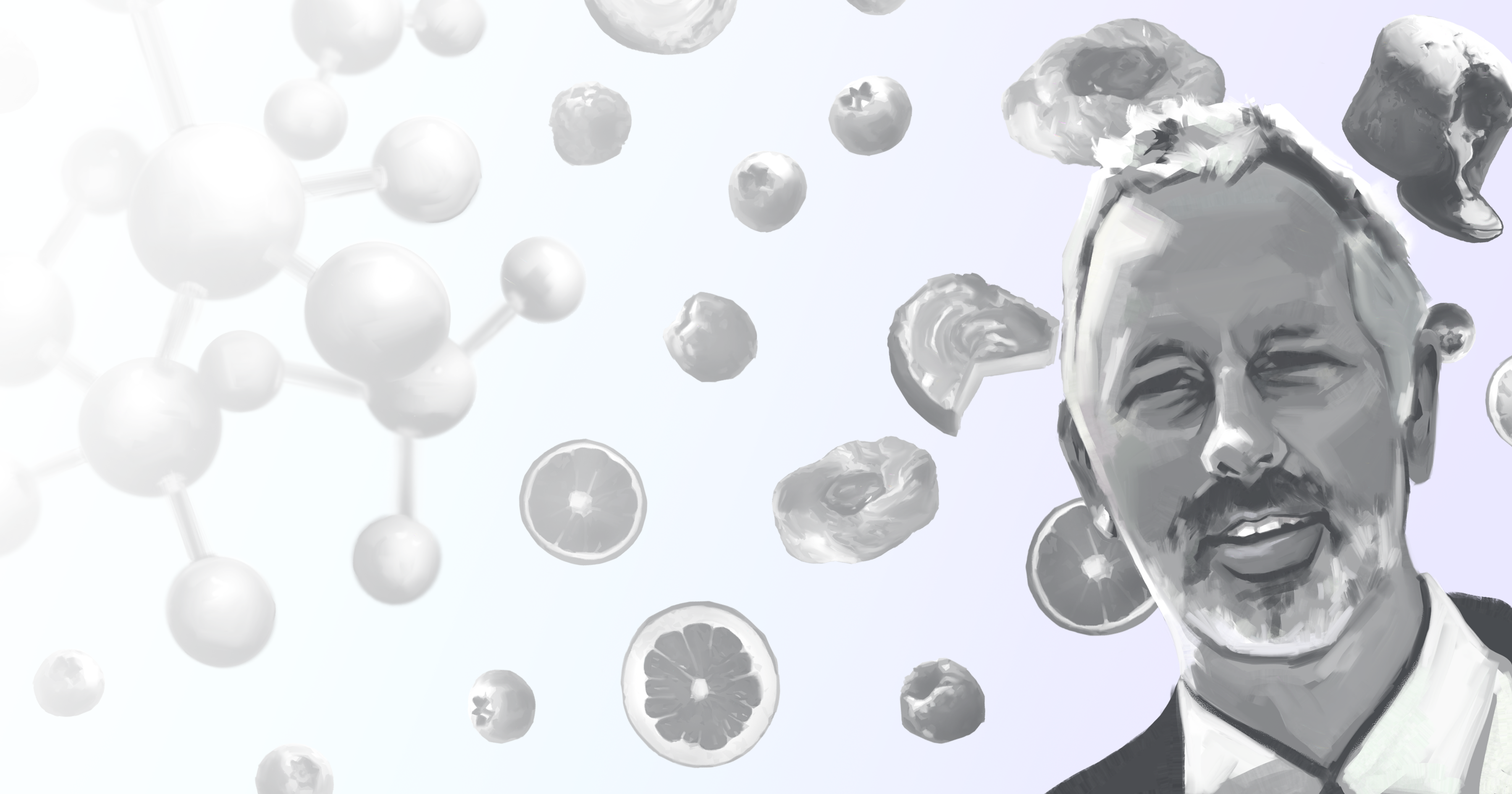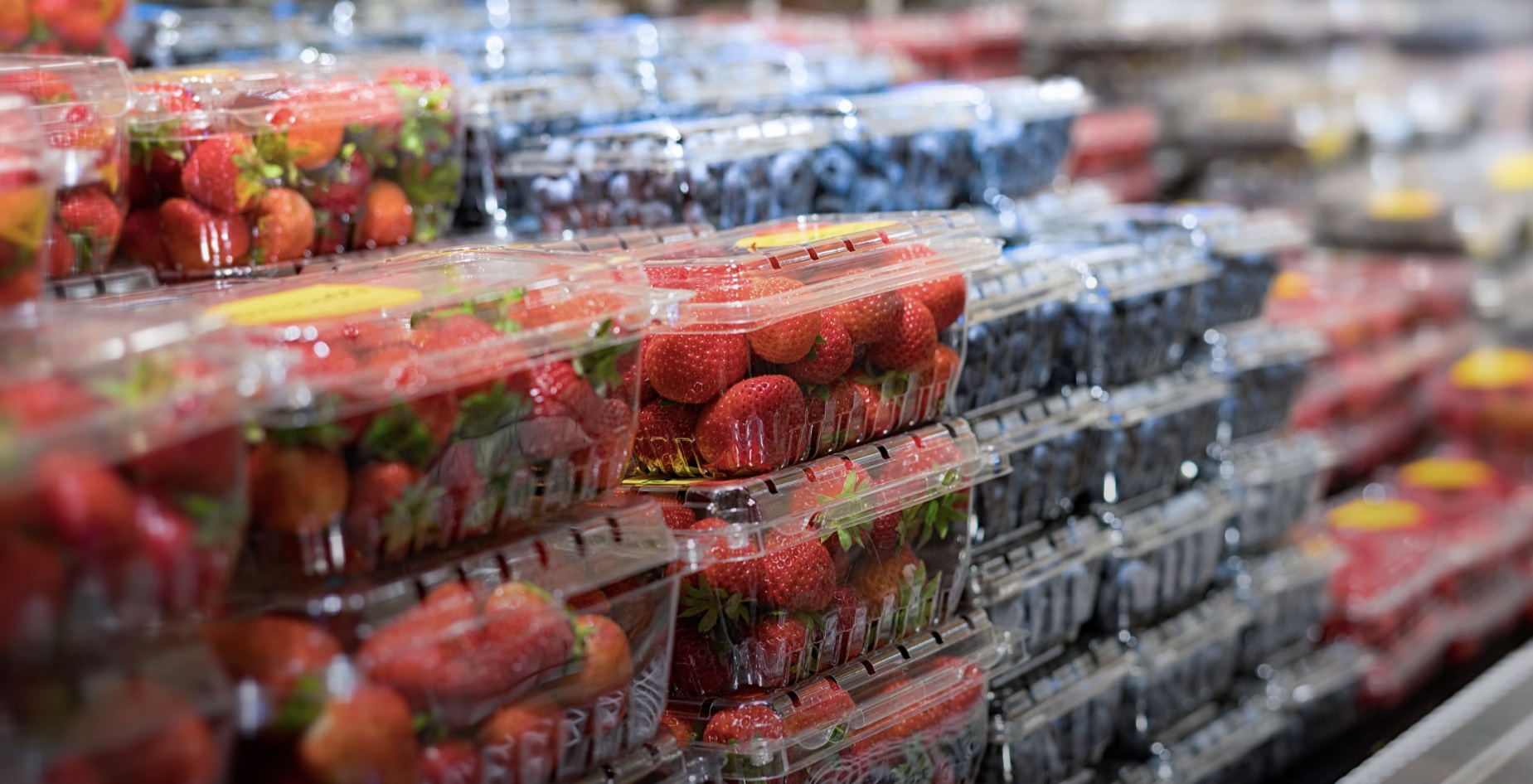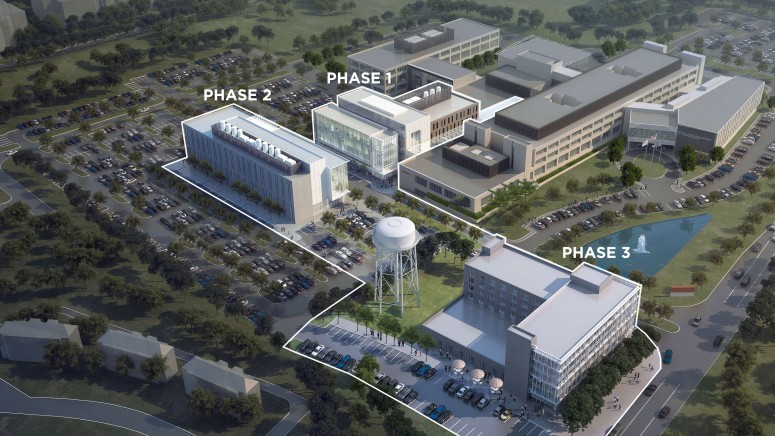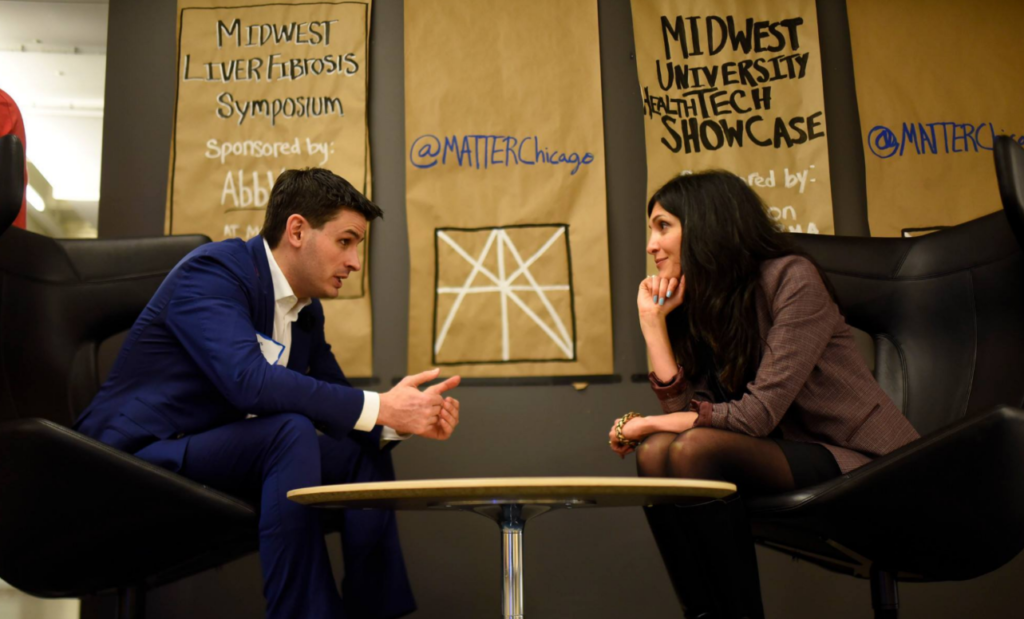Halo was founded to bring together scientists across industry, academia and start-ups to accelerate breakthroughs in the world’s most pressing problems, from sustainability to human health. As part of our Innovation Catalyst series, we interviewed a start-up with a fresh perspective on your morning cup of joe.
Engineered coffee is a mainstay of bleak science fiction futures, from George Orwell’s Victory Coffee to Margaret Atwood’s Happicuppa. The idea that “real” coffee is defunct, or attainable only by the elites, is used by these and other authors almost as a shorthand to convey just how dire things have gotten. But Atomo coffee is engineering coffee not because we are living in a blighted dystopian hellscape, but precisely to prevent our world from devolving into one.
We spoke with Atomo following the Future Food Tech conference in San Francisco. According to Garrett King, the Sustainability Partners Manager at Atomo, people drink 2 billion cups of coffee every day. He added that this enormous demand is slated to triple in the next thirty years.
Yet, our rapidly warming climate, coupled with erratic, extreme precipitation and the pests that both of these conditions allow to proliferate, is threatening today’s coffee crop. And to keep up with demand–coffee is one of the most highly traded commodities in the world–coffee growers often resort to clearing land that was formerly virgin rainforest. Not only is this deforestation problematic in and of itself, but the coffee monoculture replacing it relies on pesticides and fertilizers, intensifying the environmental damage.
Atomo’s solution: Make coffee drinks without coffee beans. Charlie Shaw, Atomo’s Director of Innovation, insists that this coffee is not synthetic; after all, they are not cooking it up from assorted precursors in a lab. They refer to it as “molecular coffee.”
How does one create an eco-replacement for the world’s most beloved beverage? Their first step is infusing date pips with flavoring elements. Date pips are the perfect starting material partially because “they’re an upcycled material,” Dr. Shaw wrote in an email. “Upcycling means no loss of forests or other wild habitats to make our product, since we’re simply using the waste streams of existing products. It also means increased revenue for farmers/growers and processors, as they’re now getting paid for (rather than paying to dispose of) their waste.”
After infusing the date pips they roast them, just like green coffee beans are roasted. The same Maillard reaction that darkens and flavors the components in the green coffee beans darkens and flavors the same components in the date pips. They add caffeine in at the end. As of now they have cold brew in cans, but eventually they hope to market beans for consumers to grind and brew at home.
It is almost like an updated, state-of-the-art fiberglass replica of the Ship of Theseus. It is not coffee brewed from coffee beans, so it is not the same as the original. But from an evolutionary standpoint, it might be fitter.


